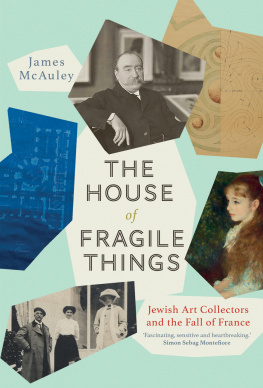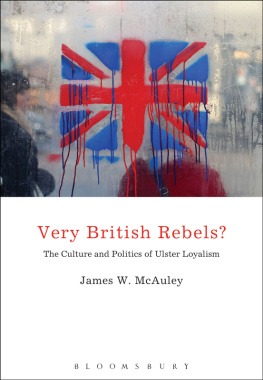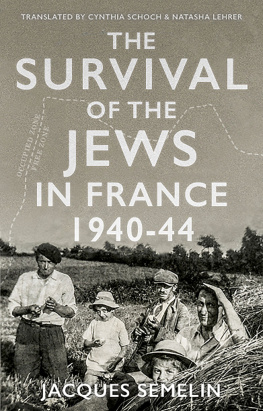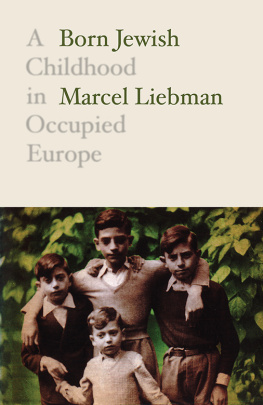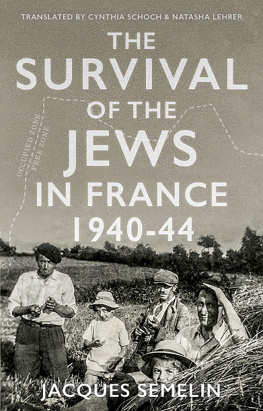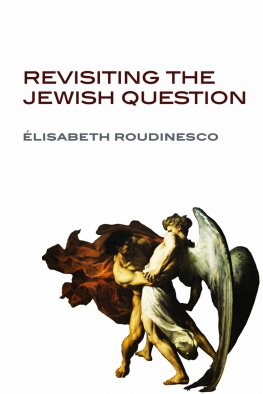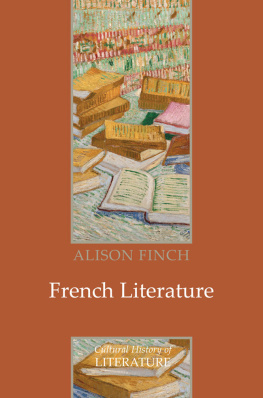THE HOUSE OF FRAGILE THINGS

Copyright 2021 James McAuley
All rights reserved. This book may not be reproduced in whole or in part, in any form (beyond that copying permitted by Sections 107 and 108 of the U.S. Copyright Law and except by reviewers for the public press) without written permission from the publishers.
Some parts of the introduction have previously been published in Town & Country (March 2017, pp. 1949, 212) and have been reproduced here with thanks, courtesy of Hearst.
For information about this and other Yale University Press publications, please contact:
U.S. Office:
Europe Office:
Set in Adobe Garamond Pro by IDSUK (DataConnection) Ltd
Printed in Great Britain by TJ Books, Padstow, Cornwall
Library of Congress Control Number: 2021930169
ISBN 978-0-300-23337-7
A catalogue record for this book is available from the British Library.
10 9 8 7 6 5 4 3 2 1
CONTENTS
ILLUSTRATIONS
Plates
In text
ACKNOWLEDGEMENTS
This book began as a doctoral dissertation in Oxford funded by the Marshall Scholarship, without whose support I could not have conducted this research. I am immensely grateful for the opportunity and for the friends I made along the way.
In Oxford, I had the great fortune of having two remarkable supervisors who shaped this project in its early stages. Ruth Haris, whose expertise in Dreyfus-era France is unrivaled, let me be creative and taught me how to write history. Martin Conway opened my eyes to so many new ideas and arguments and was always patient with me as I wandered between journalism and academia. I benefited so much from Oxfords unique intellectual environment, and especially from the Modern Jewish History Seminar, which gave me multiple opportunities to workshop portions of the project that later became this book. For that I thank Derek Penslar, David Rechter, and Abigail Green, who also very kindly read portions of my draft, as well as Robert Gildea, who evaluated the dissertation that grew into this book. It was also my luck to be in Oxford when Abigail and Tom Stammers launched the Jewish Country Houses project, a seminar that has already opened so many new doors for the study of collecting and created a wonderful community of scholarly exchange. I must thank Tom Stammers in particular, although I know I wont be able to do so enough. Tom is the real expert on this subject, and this book would simply not exist without the incredible research he has done in this field, his generosity, and his perceptive comments on these pages.
This book would also not exist were it not for the help of archivists and research librarians who helped me at every step of the way. Ever since I was a doctoral student, Sophie Le Tarnec and Sylvie Legrand-Rossi at the Muse Nissim de Camondo in Paris have provided me with countless documents, answered any number of bizarre questions even at the last minute, and combed through the entire manuscript to verify every single detail about the Camondo. Oliver Gabet, the director of the Muse des Arts Decoratifs, has also been an invaluable resource and friend as I wrote this book; I have greatly appreciated his support. At the Rothschild Archive in London, Melanie Aspey and Justin Cavernelis-Frost have likewise been exceedingly helpful and supportive, especially when the coronavirus pandemic made travel impossible. Finally, no one has been more helpful than my dear friend Bernadette Murphy of the Orphan Art Project in Paris, who knows the details of this story far better than I do. Years ago, Bernadette was my first boss, in the research library of the now-defunct International Herald Tribune in Paris; she taught me everything I know about archives. While she worked on a related project of her own, she graciously shared with me many important documents she found, including Batrice de Camondos elusive death certificate.
But I also relied heavily on a number of private archives for this book, and I am more grateful than I can say to the people who took the time to share their family stories with me. Years ago in New York, Felipe and Renata Propper welcomed me into their home, told me everything they knew about France in 1940, and have since become dear friends. If nothing else, this research project has been worth it just for their friendship. Elena Bonham-Carter in London likewise kindly received me on multiple occasions and helped me greatly in the early stages of my research. In Paris, I particularly appreciate the generosity and kindness of Catherine Bonnet, who shared her family albums and stories with me. Nathalie Corve and Guy de Leusse also contributed immensely to my research.
So many conversations and exchanges with friends and fellow scholars shaped this project, more than I can list here. But I want to thank especially Alice Kaplan, who found the time to read every single chapter of this book as it was written and to give excellent comments (and encouragement) on my drafts even as she finished a book of her own. I must also thank Lisa Fine, whose generosity knows no limit and who believed in this project long before anyone else did. Alejandra Cicognani was an invaluable sounding board, and Stellene Volandes gave me the rare opportunity to sketch out a portion of this book as an article for a general reader. That piece, edited with great care by Norman Vanamee, grew into my introduction. Anne Higonnet, whose work has been an inspiration, gave so much good advice from the very beginning and combed through these pages with a razor-sharp eye. Aron Rodrigue, Lisa Leff, Phil Nord, Maurie Samuels, Emma Rothschild, Patrick Weil, Jean-Marc Dreyfus, Nicolas Kugel, Alice Leg, David Pullins, Basile Baudez, Margaret Higonnet, and Pauline Prevost-Marcilhacy all read through the manuscript and offered terrific suggestions for how to make it stronger. Cyril Grange, whose book on the Parisian Jewish elite is an inspiration, generously shared private archival documents with me. Natasha Lehrer knows more about the Reinachs than anyone, and went with me to trace what remains of the family in Saint-Germain-en-Laye. I would also be remiss not to thank especially Alex Katz, who has been dragged to the Camondo museum way too many times on visits to Paris, Jason Farago, the best editor (and friend) there is, and Simon Kuper, who gave excellent comments on my draft even while writing his next book. Pamela Druckerman, Rachel Donadio, Benjamin Moser, Isabel Kaplan, Julian Gewirtz, Madeleine Schwartz, Sofia Groopman, Etelle Higonnet, Ruth Eglash, Judith Jacob, Adam Nossiter, Geoffrey Shaw, Will Stoeckle, Hilary Hurd, Sarah Cleveland, Patricia Sustrac, Anne Sebba, Cameron Barr, Phil Kennicott, Charlotte Smart, Susannah Jacob, and Eli Martin all gave invaluable insights as I wrote.
I could not have asked for a better editor than Julian Loose, who immediately understood this project and was incredibly patient with me as I researched it. At Yale University Press, I would also like to thank Marika Lysandrou, Katie Urquhart, and Percie Edgeler, who made this book look beautiful, and Rachael Lonsdale and Lucy Buchan for putting it all together. Heather Nathan, Chloe Foster, and Maria Zygogianni have handled the books publicity brilliantly.
Finally, I also thank my parents, Jennifer and Jay McAuley, who I love more than I can say and who have been so incredibly supportive of me, including in providing every educational opportunity imaginable from a young age. Its in that spirit that I reflect on the origins of this project. Everyone should be so fortunate to have a professor who changes their life, as I did in Patrice Higonnet, who has taught me so much and who first suggested I visit the Camondo museum many years ago. This book is dedicated to him.
Next page
